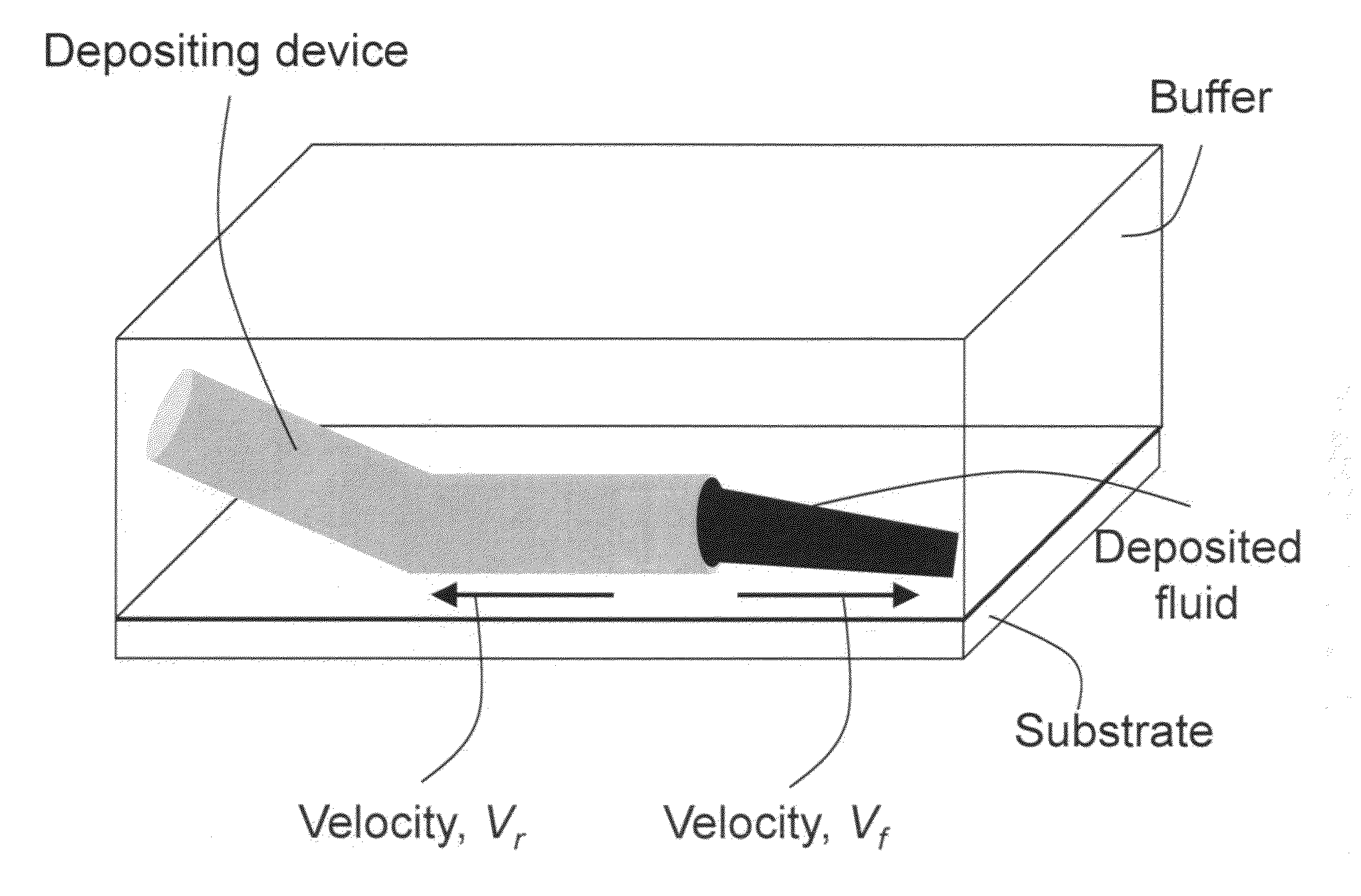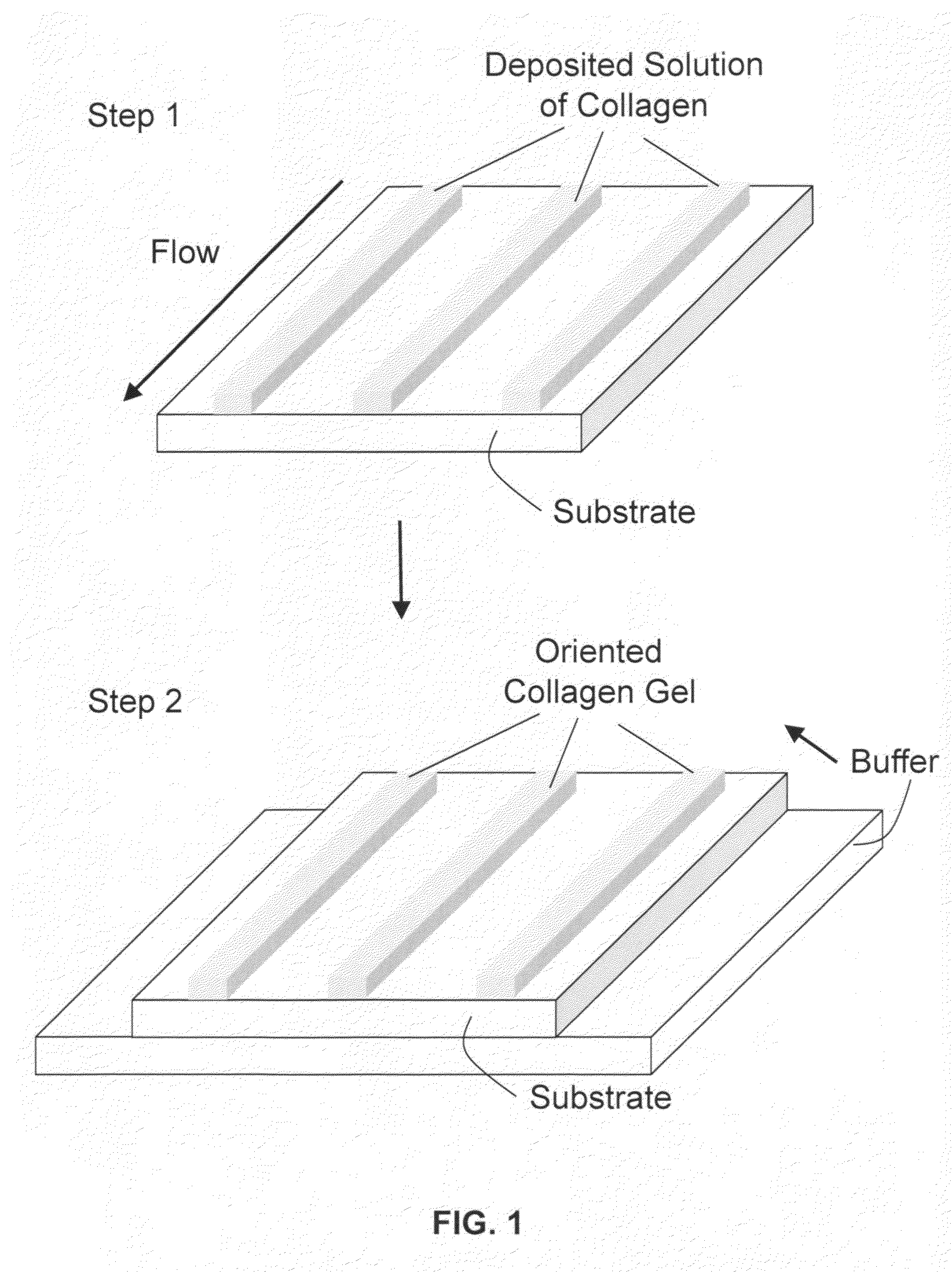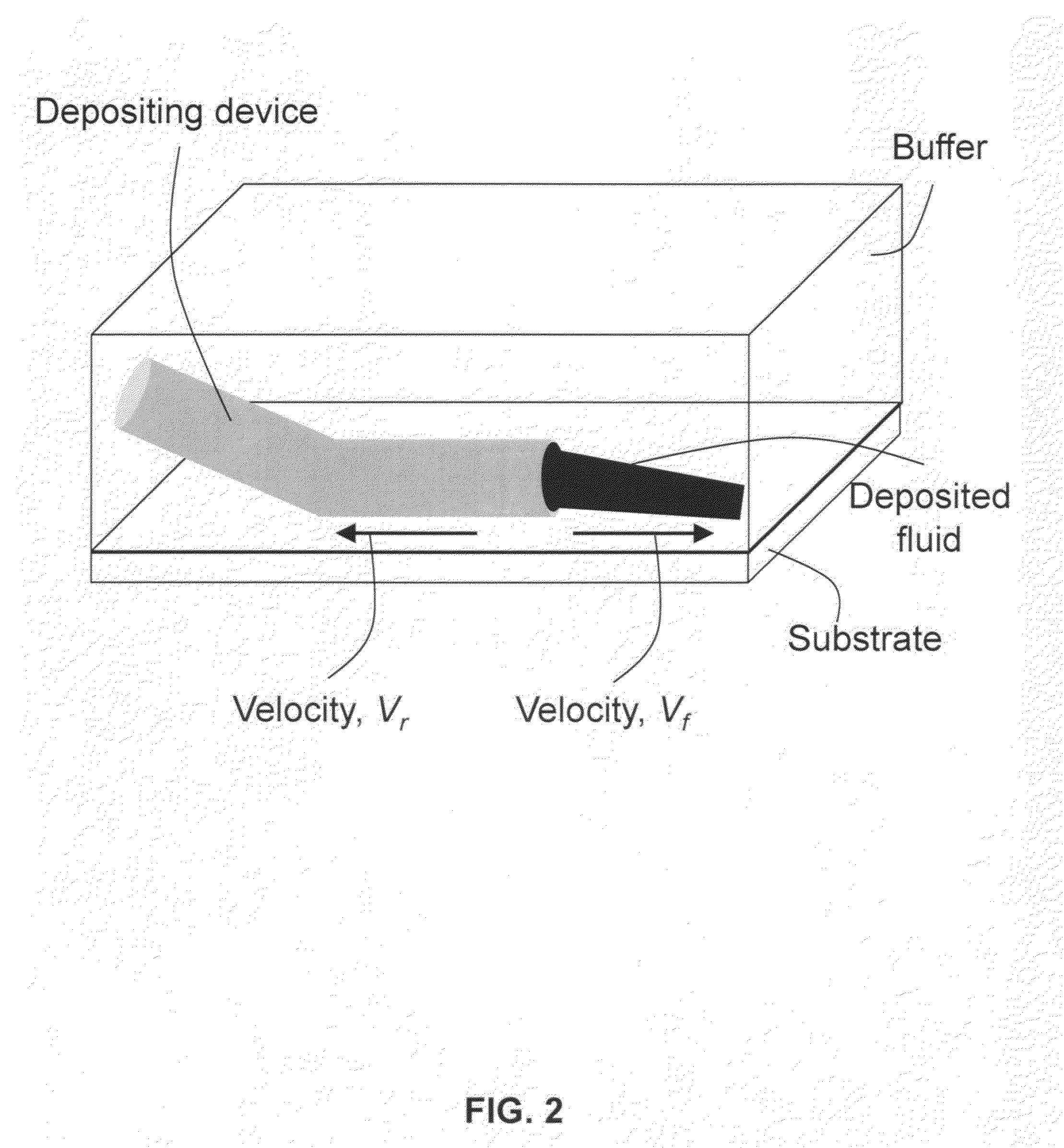Oriented collagen gel
a collagen gel and oriented technology, applied in the field of collagen gels, can solve the problems of collagen degradation or adverse cytotoxicity on cell growth, too weak randomly oriented gels to bear tensile loads or surgical manipulation, and difficult control of releas
- Summary
- Abstract
- Description
- Claims
- Application Information
AI Technical Summary
Benefits of technology
Problems solved by technology
Method used
Image
Examples
Embodiment Construction
[0022]The description presents the production of flow-oriented collagen gels using hydrodynamics to influence the assembly of collagen fibers. Highly concentrated (monomeric) solutions of collagen are deposited on a substrate and subsequently induce fibrillogenesis under a high pH buffer. During the deposition the collagen solution is subjected to shear and extensional flow as they are drawn onto a substrate. The produced gel captures the flow induced ordering of molecular collagen upon fibril formation. The oriented collagen fibers are observed using optical birefringence measurements and the culture of adult human fibroblasts. The growth and polarization of adult human fibroblasts on these oriented gels is discussed.
Materials
[0023]Rat Tail Collagen, Type I (BD Biosciences) was purchased at stock concentrations of 3.6 mg / mL and 10 mg / mL in 0.02 N Acetic Acid (pH˜3.5). The 10 mg / mL solution was then dialyzed against polyethylene glycol (Fluka) for 20 minutes at 4° C. until the solut...
PUM
| Property | Measurement | Unit |
|---|---|---|
| Concentration | aaaaa | aaaaa |
| Concentration | aaaaa | aaaaa |
| Concentration | aaaaa | aaaaa |
Abstract
Description
Claims
Application Information
 Login to View More
Login to View More - R&D
- Intellectual Property
- Life Sciences
- Materials
- Tech Scout
- Unparalleled Data Quality
- Higher Quality Content
- 60% Fewer Hallucinations
Browse by: Latest US Patents, China's latest patents, Technical Efficacy Thesaurus, Application Domain, Technology Topic, Popular Technical Reports.
© 2025 PatSnap. All rights reserved.Legal|Privacy policy|Modern Slavery Act Transparency Statement|Sitemap|About US| Contact US: help@patsnap.com



